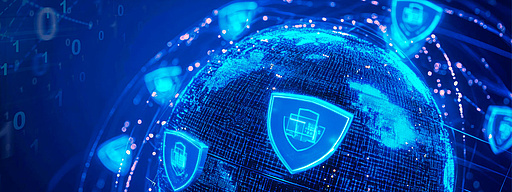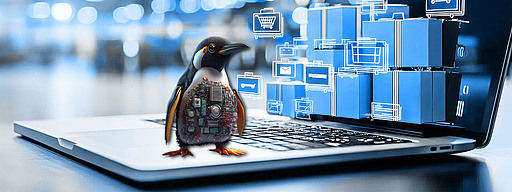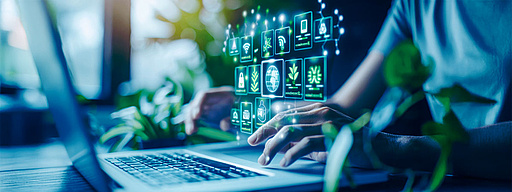
New release with remote maintenance, end user experience and Linux inventory
Release 2023 R2 of the baramundi Management Suite (bMS) is almost bursting at the seams - so many innovations and enhancements have been packed into this release by the baramundi developers.
In short
- In collaboration with AnyDesk, baramundi is expanding its remote maintenance solutions with a modern, Internet-enabled remote desk tool, with a smart authorization system, reliable encryption and private mode.
- The baramundi Argus Experience module now makes it possible to identify the cause of slow startup times and program crashes of individual devices. In addition, Argus Experience helps monitor the battery performance of endpoints.
- Android Zero-Touch enables automatic integration of Android devices into baramundi management, saving time and simplifying configuration for users.
- The release now includes the option to capture Linux-based devices via SSH without agents and manage them via SSH-based script execution - a real advantage especially in the OT area.
Remote maintenance – Leaving less time on the line
Home office has many advantages – but one serious disadvantage: If you need help with technology, you can wait quite a long time until an admin finds his way from his office to your home.
Fortunately, we no longer live in the days when sneaker admin is the only viable option. Remote maintenance has become an absolute must with the rise of flexible work locations - reason
enough for baramundi to expand the existing Remote Control module with the modern, Internet-enabled Remote Desk
solution. In collaboration with our technology partner AnyDesk, we now have a new remote maintenance tool that
stands out for its ease of use, uncompromising security and outstanding data protection.
An authorization system ensures that only authorized computers in the company are allowed to start a session on the end users' computers. This already eliminates one of the
biggest weaknesses that the use of remote maintenance software usually entails. The connection is not only encrypted, but also only exists for the short period of time while an admin
connects to the target device. The private mode allows the admin to hide certain content from the user – keyword: entering passwords or configurations. At the same time,
end users are always explicitly informed that someone has connected to their computer.
Operation is very simple: As soon as a baramundi agent is on the device, Remote Desk is available there. Admins can drag and drop the required files onto the target computers and execute
regular shortcuts there. For example, even more complicated configurations, such as restoring a broken VPN access, can be done with minimal effort. In other words: With baramundi Remote
Desk, an admin can act exactly as if he were sitting in front of the end user's computer.
baramundi Argus Experience grows and thrives
A number of changes have also been made to baramundi Argus Experience: The module now detects slow computer startup times and also what the potential triggers for this are.
Thus, it is recorded separately whether the delay occurs in the BIOS, in the boot phase or in the login process. In combination with the information on the hardware and software used and
the time periods in which the delays occur, admins can very quickly identify bottlenecks and take remedial action.
The situation is similar with program crashes. "But it works on my device" is a well-known and hated saying. By correlating program crashes with the version level, such
correlations can now be quickly resolved. Admins can see which version is the cause and can update the computers to the correct one.
Battery performance monitoring will make many field workers happy: With this feature, weakening batteries can be identified and replaced in time before they decide to give
up the ghost during an important presentation.
Finally, the new benchmark function provides important information about which devices perform particularly well or poorly. Their characteristics can then be easily read
out. Admins thus have the quickest possible overview of which hardware and software should be replaced in order to provide their end users with optimal performance.
Android Zero Touch
What has long been possible for iOS, macOS and Windows is now also available for Android: New or reset Android end devices can be automatically added to baramundi Management during initial commissioning. This means that the devices no longer have to take the detour from the dealer to the IT department in order to be issued to the users from there. Instead, the baramundi Agent is already set up by the user during initial commissioning and the necessary and intended apps and configurations are then automatically installed. This saves time and effort for everyone involved.
Linux systems – not a book with seven seals
The new release also has something for Linux: With the new version, Linux-based devices can be detected and inventoried via Secure Shell (SSH). This does not require an agent on the end devices. This is particularly helpful in the OT area, where additional installations are not always possible or welcome. Together with SSH-based script execution via the new job step "Job for OT or network devices", admins thus have completely new options for centrally managing Linux systems in their network.
Read more
Cyber resilience: the most important trends for secure endpoint management
The ingenious principle of Linux software management
- Tags:
- uem,
- bms,
- linux,
- managed software


